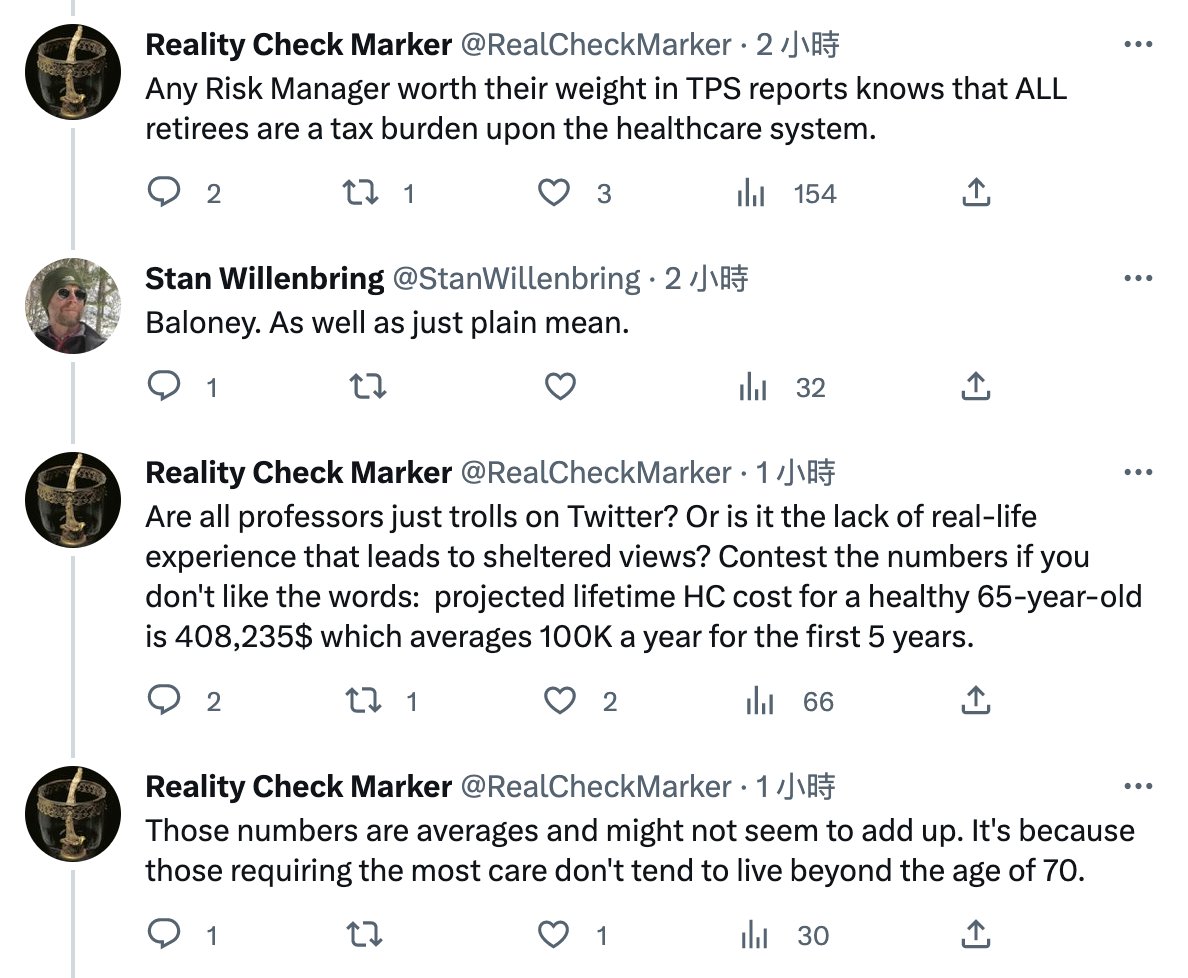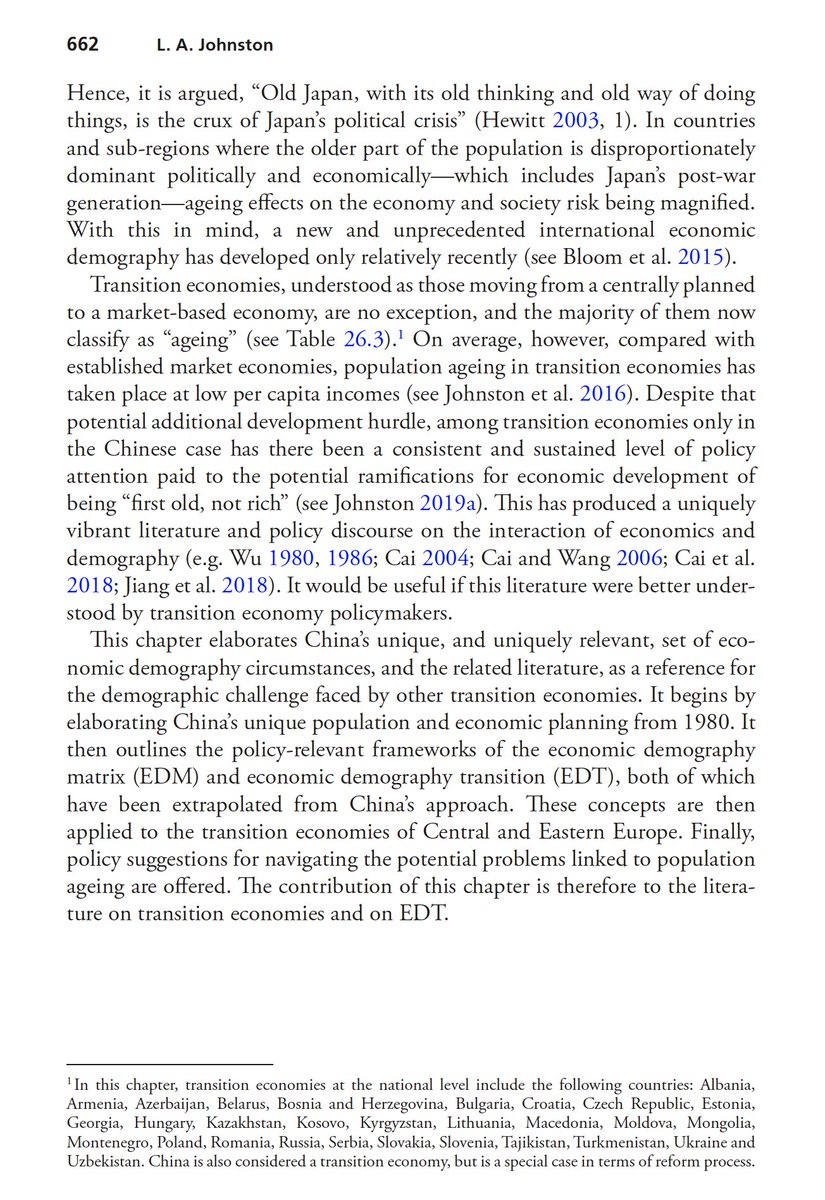1. Is SARS starting to unravel the west?
As IR scholar I analyze such questions. Where are we, where are we heading?
After vaccines or reinfections decreased acute phase death ratios (aCFR), most experts now think the “pandemic’s over”. They are wrong.
USA vs. Taiwan, 0 : 1 ☺️

As IR scholar I analyze such questions. Where are we, where are we heading?
After vaccines or reinfections decreased acute phase death ratios (aCFR), most experts now think the “pandemic’s over”. They are wrong.
USA vs. Taiwan, 0 : 1 ☺️


2. I am no Russia expert. (1) Can someone tell us how former SU states, above all Moscow, managed to drop life expectancy to 69 yrs in 2021, before Putin’s war? Now it’s lower yet again, with many young men being lost. (2) Read this thread as background. 
https://twitter.com/realcheckmarker/status/1646468003851120640

3. Russia is back in Soviet LE territory.
This is no new insight. We just talk about it too little. Russians/experts, feel free to comment.
Less obvious the epidemiological link.
“Living with covid” means degrading healthcare also in the west. Russian humor can help with that!
This is no new insight. We just talk about it too little. Russians/experts, feel free to comment.
Less obvious the epidemiological link.
“Living with covid” means degrading healthcare also in the west. Russian humor can help with that!

4. US friends - yes we don’t even know what to say. You might have a contracting empire problem 🤨
https://twitter.com/fitterhappieraj/status/1646217939757199360
5. I cannot guarantee that this wouldn’t happen in China, but highly doubt it.
https://twitter.com/AlisaValdesRod1/status/1646370592214646784
6. If people care, they can easily find out what’s happening. Here my new favorite theory: we upgraded to « Vaccinated, Infected and Relaxed », putting the vir back into virology.
This is funny if you recall your high school Latin.

This is funny if you recall your high school Latin.


7. You need no advanced Latin skills to continue our cheerful little investigation of SARS-CoV-2 dynamics in different states and the international system.
Some basic math in this truth sandwich - teachable lessons aplenty.
Some basic math in this truth sandwich - teachable lessons aplenty.
https://twitter.com/RealCheckMarker/status/1646514752980647946

8. To science up, follow @lajohnstondr for the getting old before/after rich journey.
China is getting old before getting rich.
By contrast, Japan, South Korea, Singapore, Taiwan and Hong Kong accumulated wealth to become rich first. <>More room to err. eastasiaforum.org/2012/12/22/get…
China is getting old before getting rich.
By contrast, Japan, South Korea, Singapore, Taiwan and Hong Kong accumulated wealth to become rich first. <>More room to err. eastasiaforum.org/2012/12/22/get…
9. Southern Africa was missing from the graph: NOW we’re talking getting old before getting rich!
What do we make if the world average life expectancy dropping 1.8 years in two years (2019-2021)?
Link:ourworldindata.org/9c8f9cc8-78e3-…
What do we make if the world average life expectancy dropping 1.8 years in two years (2019-2021)?
Link:ourworldindata.org/9c8f9cc8-78e3-…
https://twitter.com/_ppmv/status/1646504194109521920

Correct link: ourworldindata.org/grapher/life-e…
10. SARS should never have gone past summer 2020, had public health principles been heeded. The US, EU, UK made it a question of demographic transition. Fast forward to today: now everyone involved in policy or analysis needs to read up on comparative economics. Learn from China. 



11. Here general, and #ZeroCovid specific, arguments I didn't see elsewhere. Worth elaborating.
Anyway, back to making hay while the sun shines. 🤣👌
link.springer.com/chapter/10.100…
sydney.edu.au/content/dam/co…
asia.nikkei.com/Opinion/The-un…
Anyway, back to making hay while the sun shines. 🤣👌
link.springer.com/chapter/10.100…
sydney.edu.au/content/dam/co…
asia.nikkei.com/Opinion/The-un…
12. This graph was missing Southern Africa too. Comparative scholarship allows you to time travel. 
https://twitter.com/_ppmv/status/1646501145811009536

13. Why look at the past 150 years to see the future? This is the fossil fueled explosion in human creativity and activity we usually look at in climate.
https://twitter.com/_ppmv/status/1646499782481915907
15. This graph shows how the world grew from poor health in 1800 to great inequality in 1950 and again more equality at a higher level in 2012. Someone could update it with 2022 data: I expect we exceeded 2012, but now start moving down.
Both inequity and longevity are at stake.
Both inequity and longevity are at stake.

16. Here we go. Ending #ZeroCovid policy dropped life expectancy in Shanghai by one year in 2022. Autumn/winter, if you recall. Depending on how close back to near-#ZeroCovid China gets, effect will be more pronounced going forward.
https://twitter.com/xiaojingcanxue/status/1646421982676914177
16. China is aiming to reach 79 years LE in 2030. This research note is interesting because China CDC estimates SARS-CoV-2 had no significant impact on LE 2020-2021 thanks to dynamic ZeroCovid policy. Its relaxation at the end of 2022 needs further M&E. weekly.chinacdc.cn/en/article/doi… 

17. Biden & US embassy kids at Dublin airport
Boy: “What’s your top step to success?”
Biden: “well, making sure that we don’t all have Covid. Why are you talking about this?”
Look, he knows 😂
Boy: “What’s your top step to success?”
Biden: “well, making sure that we don’t all have Covid. Why are you talking about this?”
Look, he knows 😂
https://twitter.com/rtenews/status/1646166347246710784
18. Long story short, we are collectively failing at the political science problem of our lifetimes. Good luck guys and girls, call us when you're tired of failing, and want to start working on solutions.
https://twitter.com/_ppmv/status/1618254517518364672
19. Kid: What’s the top step to success?
Biden: making sure that we don’t all have COVID.
Biden knows. What do the “living with COVID” say to this?
Biden: making sure that we don’t all have COVID.
Biden knows. What do the “living with COVID” say to this?
https://twitter.com/michael59503746/status/1647049473754034177

Rest of the answer seems typical enough, but the slip of tongue is curious.
https://twitter.com/julia_doubleday/status/1647002291994759168
• • •
Missing some Tweet in this thread? You can try to
force a refresh


























